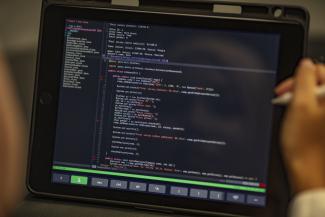
SINGAPORE, 20 July 2020 (Monday) – With the rapid spread of the pandemic which has infected more than 14 million globally to date, the world is grappling with control measures to stop the virus from further proliferation.
Since 2018, the Paris Peace Forum (PPF) has brought together Heads of State, Government and international organizations with civil society and the private sector together to conceive new forms of collective action for global challenges. The third edition in 2020 themed “Bouncing back to a better world” will focus on projects and initiatives aimed at addressing COVID-19 and improving collective resilience of the world population.
Taking place in November 2020, international projects shortlisted by the PPF’s Selection Committee which comprises renowned experts from key institutions of global governance will receive support for upscaling along four dimensions, namely policy and advocacy; communication and visibility; partnerships and funding; and organisation.
The Singapore Management University(SMU) has responded to its Call for Projects with research initiatives currently undertaken by the SMU School of Law’s Centre for AI and Data Governance (CAIDG) and the School of Information Systems (SIS). These projects leverage the development of intelligent technology to improve social distancing measures and identification of vulnerable populations, which may be challenging to manage using physical human means.
Project by SMU Centre for AI and Data Governance
CAIDG’s research focuses on post pandemic eldercare. Using AI and big data innovation, it will provide a diagnostic risk modelling tool which helps predict population vulnerability for the elderly, especially in low and middle income countries.
“A feature of the failings in this recent pandemic healthcare has been the incapacity to adequately predict risk populations early enough for preventive strategies to be successfully directed toward their particular needs. In developed nations, migrant workers housed in confined conditions, and older people in institutional settings present examples of vulnerability where standard control responses such as social distancing have not been available due to realities of living conditions,” says Professor Mark Findlay, Professorial Research Fellow and Director, CAIDG, SMU School of Law.
“Whether it be in tracking/tracing strategies or containment surveillance, AI-assisted surveillance technologies and big data sharing have been key in the responses of China, Singapore and many developed nation states. The capacity of these technologies can be debated and the challenges they pose to personal data integrity and civil liberties questioned but combined with human-centred control through mass testing and manual tracing, AI- assisted technologies give benefit in a holistic control response.” he added.
Through selection, adaptation, testing and evaluation of AI-assisted technologies, the diagnostic tool would be able to identify structural and demographic factors that contribute to the pandemic. Accordingly, risk strategies such as quarantines and incubation can then be devised towards containment.
The exercise will pilot in India and will thereafter be rolled out to other countries at later stages. CAIDG will be collaborating with the Centre for Internet and Society in Bangalore, and the Advanced Care Research Centre at the University of Edinburgh.
Project by SMU School of Information Systems
The second project submission is the Singapore Spacer, a collaborative effort between SMU’s School of Information Systems and the National University of Singapore (NUS), and supported by private companies including Aviation Virtual, ESRI and SenzIQ. The tool makes use of Wifi networks to accumulate information on the density of people in areas without disrupting living routines. Data collected allows the owners of facilities and public spaces to make principled choices about what actions to take to reduce the likelihood of person to person COVID-19 transmission. Policies to limit community spread can also be evaluated on their effectiveness based on this information. The Singapore Spacer system went live in April at the NUS campus.
“We believe that social distancing will remain a challenge for the next few years that every country will need to grapple with. Even after an effective vaccine has been found, we suspect safe social distancing policies will still continue to be in place for various reasons. Our ultimate goal is to provide a holistic solution that can be used across any campus and public space to help improve the safety and well-being of the users of those spaces.” said Professor Rajesh Krishna Balan, Associate Professor of Information Systems, SMU.